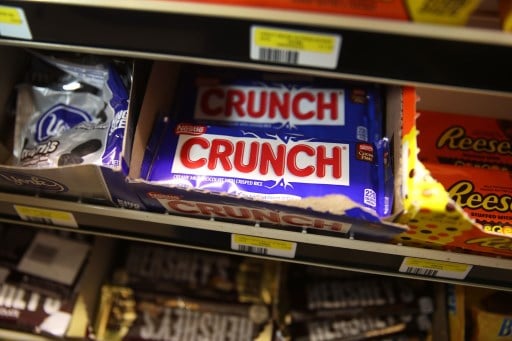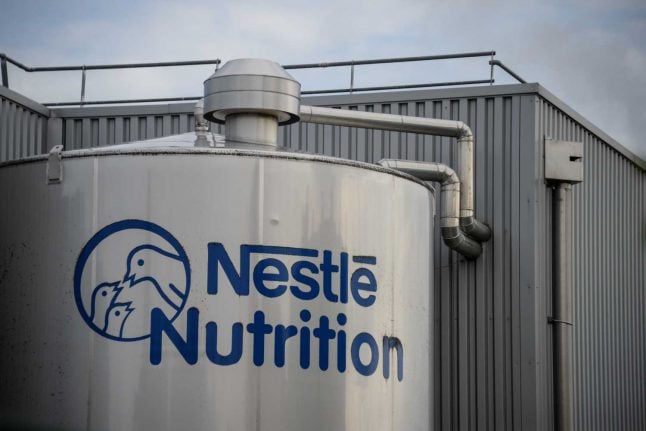NESTLE
Swiss giant Nestlé makes $2.8 bn sweet deal with Ferrero
Nestlé said on Tuesday it has agreed to sell its US candy business to Italy's Ferrero for CHF 2.7 billion ($2.8 billion/2.3 billion euros) in cash as the Swiss food giant shakes up its product portfolio.
Published: 17 January 2018 08:24 CET

Photo: Joe Raedle/Getty Images North America/AFP
Ferrero, known for its Tic Tac, Nutella and Ferrero Rocher brands but which has traditionally preferred organic growth to acquisitions, will now be picking up Crunch, Butterfinger and Baby Ruth from Nestlé.
The sale will make Ferrero the third-largest confectionary company in the US market.
According to media reports, Ferrero competed with major chocolate manufacturer Hershey and private funds, including Rhone Capital, to secure the deal.
Executive chairman Giovanni Ferrero said that after the acquisition the Ferrero Group “will have substantially greater scale, a broader offering of high-quality products to customers…” in the United States, the world's largest confectionary market.
Nestlé's chief executive Mark Schneider said the deal “allows Nestlé to invest and innovate across a range of categories where we see strong future growth and hold leadership positions, such as pet care, bottled water, coffee, frozen meals and infant nutrition.
$8 billion market
Nestlé has begun to reposition itself since Schneider, who previously headed up German healthcare group Fresenius, took over the reins of the Swiss firm at the start of last year.
It has snapped up companies that make vegetarian meals, vitamins and luxury coffee.
Its US candy business registered sales of some 900 million Swiss francs in 2016, in a market worth an overall $8 billion, according to Ibis World.
The figure only represented around three percent of its overall US sales, Nestlé said.
The company added it remains fully committed to growing its leading international confectionery activities around the world, particularly its global brand KitKat.
The family-run Ferrero businesses has 22 production sites and 30,000 employees.
In ten years the company has more than doubled its turnover, to more than ten billion euros.
Since 2014 it has acquired the Turkish group Oltan, specializing in hazelnuts, and the British chocolatier Thornton's before starting its offensive in the US.
The deal is expected to be finalized by the end of March, Nestlé added.
Url copied to clipboard!


 Please whitelist us to continue reading.
Please whitelist us to continue reading.